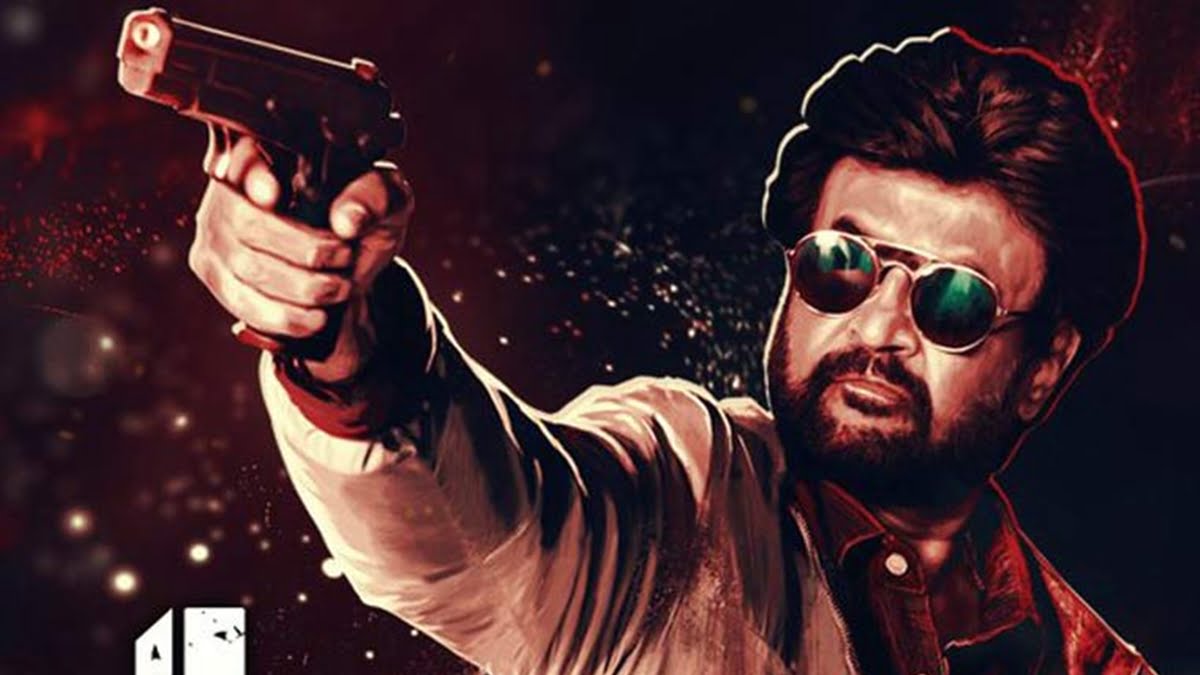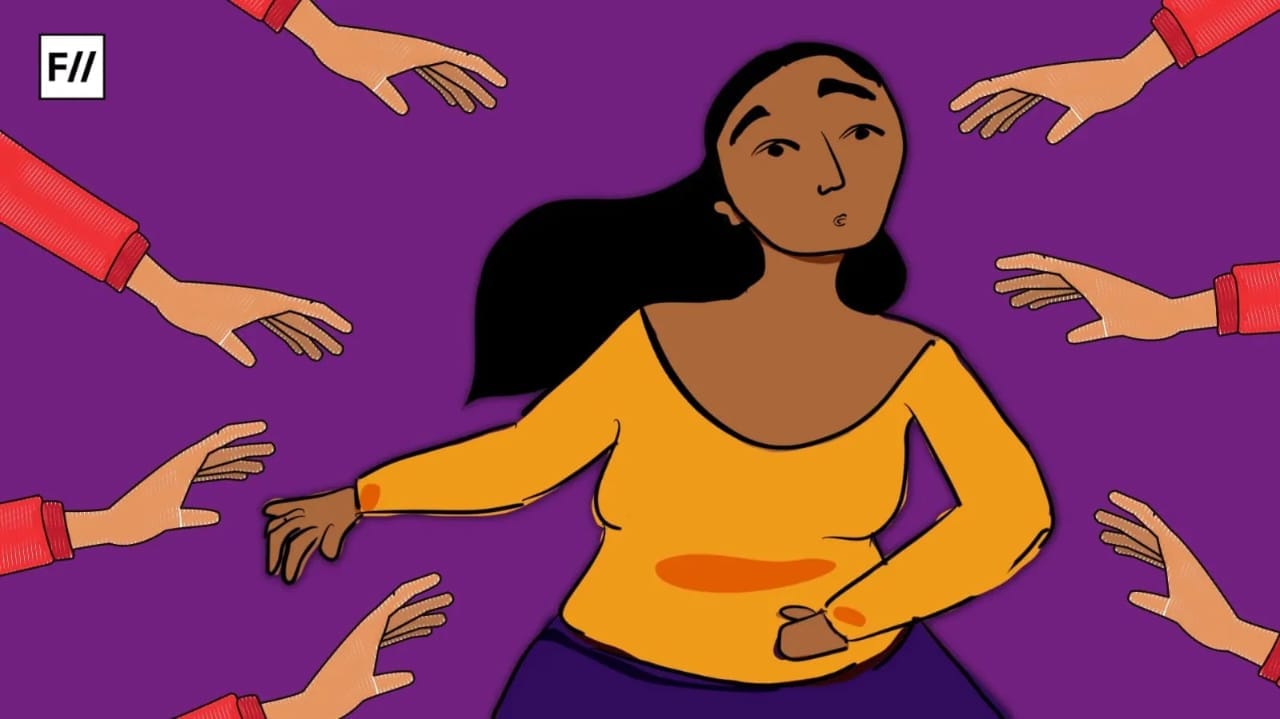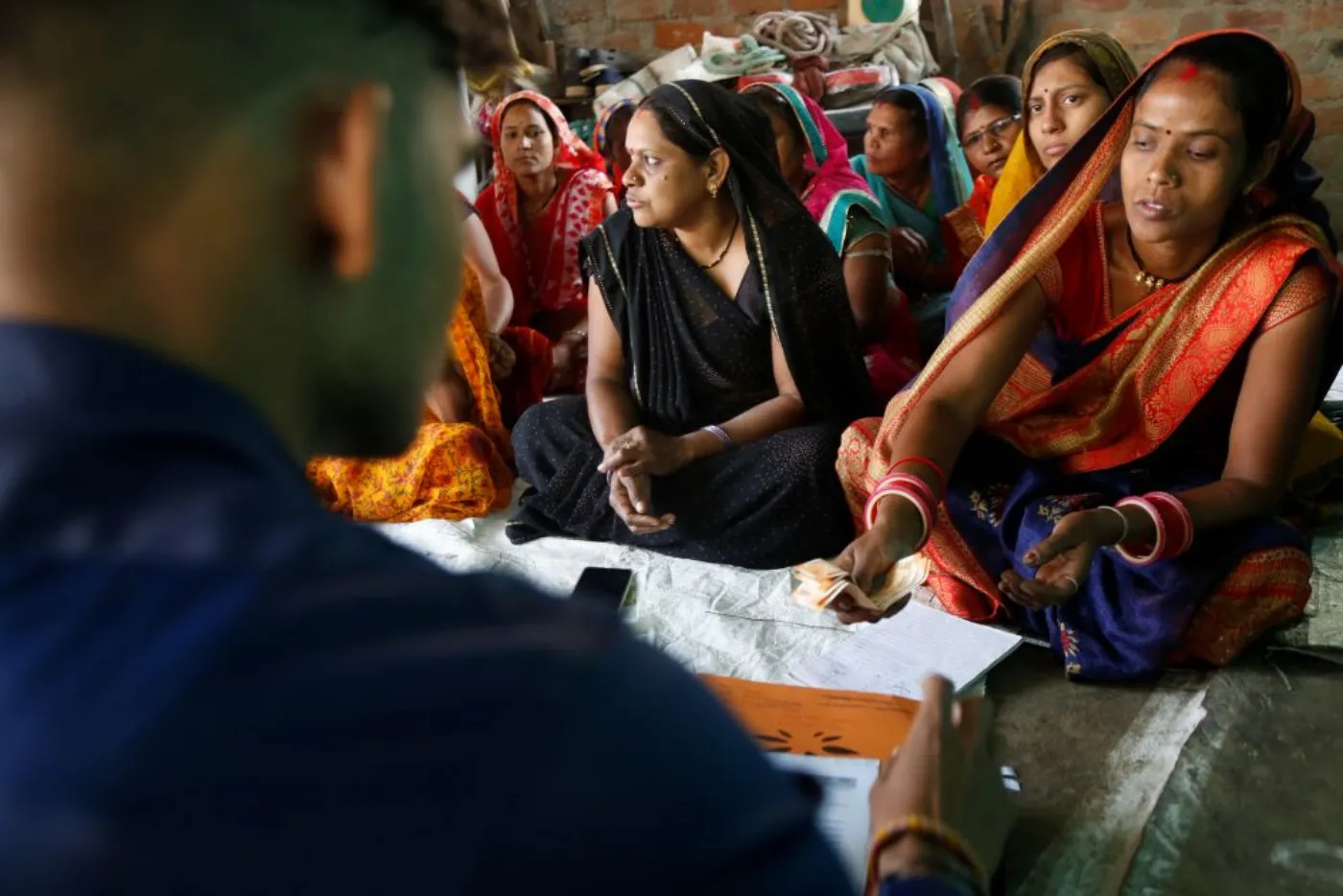Darbar is a 2020 film that fulfils the checklist of every Rajnikanth film formula – style, sunglasses, swagger, but also, lots of fights, gore, villains, bloodshed, and a morally sound hero who stands up against an international drug lord. The film builds on emotion, violence and how the righteous man in uniform who can do no wrong. It is this formula in several films – across regional and Bollywood – that has gained thousands of fans among Indian audiences and also, glorified police brutality.
Although the plots of Rajnikanth films are usually seen as above reproach simply because of his star value, we need to ask ourselves if we are really going to consume the same masculinist tropes year after year, trying to understand these films not merely through the lens of entertainment, but also as agents of agenda setting. What kind of messaging are we conditioned into believing, through the imagery of Darbar and films like it?
Also read: How Bollywood Is Complicit In Glorifying Police Brutality
Darbar definitely isn’t the first in a sea of films that glorify the “man in uniform” who can do no wrong. Right from Gautam Menon’s ‘Kaakha Kaakha’ which was instrumental in establishing Surya’s career, and ‘Saamy’ in which Vikram says “Naan Police Illa, Porukki” (I am not a policeman, I am a thug”) to Darbar today, the image of the ‘bad cop’ is very appealing to Tamil audiences.
Darbar definitely isn’t the first in a sea of films that glorify the “man in uniform” who can do no wrong. Right from Gautam Menon’s ‘Kaakha Kaakha’ which was instrumental in establishing Surya’s career, and ‘Saamy’ in which Vikram says “Naan Police Illa, Porukki” (I am not a policeman, I am a thug”) to Darbar today, the image of the ‘bad cop’ is very appealing to Tamil audiences. In fact, one of the very first dialogues delivered in Darbar with reference to the hero by one of his adversaries is – “He isn’t a cop. He’s a killer”. The idea is to make the audience fall in love with a hero – portrayed as a good man who is grossly misunderstood.
Within a few minutes of the dramatic opening scene in Darbar, the hero gets into trouble for a series of encounters that he conducted with the help of his faithful officers. When officials from the National Human Rights Commission come to confront him on his encounters and excesses, he dares them to walk out of the room alive. He subsequently asks a fellow police man something that invites controversy, especially in a time when we are talking about police brutality and human rights – “Shall we kill everyone from the Human Rights Commission so that they stop harassing us about doing the right thing?” he smirks. Rhetorical though this question is in Darbar, it begs us to ask ourselves – where is the line between justice and police brutality? Is it the place of a man in uniform to make such suggestions towards anyone at all, let alone a statutory body that intends to protect human rights?
Let us agree that this is not a question of whether the criminals deserved to die or not. Incidentally, the encounters by the hero in Darbar were all of people who were involved in drug trafficking and trafficking of women across borders. The gendered nature of this crime where women are commodified and sold across borders as objects is horrific. Hence, surely, it is natural for us to wish the harshest to befall upon such criminals. That being said, the question is more about the brash impunity with which “justice” is delivered by those who have no business doing so. In a manner of high-handedness and what is portrayed as sheer bravado, the Darbar hero goes about killing criminal after criminal, occasionally breaking into a dramatic dialogue like- “Basically, I am a villain at heart” followed by laughter, applause and thrilling music.
Why do these tropes sell though? Why does this righteous man on screen attract huge Tamil audiences? We need to understand the appeal of this narrative in the context of our failed legal and judicial system. For a survivor of sexual violence (and I take this example because in most of the Tamil movies that celebrate the supercop, sexual violence against women is commonly used as a justification for encounters), the attitude of the police is the first barrier to obtaining justice. Women are character assassinated in police stations and sometimes even intimidated by the cops themselves when they go to file complaints. The capacity of fast track courts has not been built adequately and we work with an overburdened judiciary. Attitudes of judges delivering judgments are also replete with misogyny as is evidenced in the recent instance of the Karnataka High Court making an outrageous anti-woman comment that “It is unbecoming of an Indian woman to fall asleep after she is raped” while granting pre-arrest bail to the accused.
Therefore, the larger public, in response to this broken system, somehow sees a saviour in a man in uniform, as is evident in Darbar, who takes law into his own hands. Even in the recent encounter of the four rape-accused in the Hyderabad gang rape case, the cops who instrumented the ‘encounter’ were celebrated as heroes. However, we must not forget that when the girl’s family went to file an FIR, the police insinuated that she must have eloped with somebody. How do we make sense of a police force that refuses to file FIRs, character assassinates survivors who attempt to seek legal help for rape or sexual assault, continuously let women down and then all of a sudden, gun the alleged perpetrators down and save the day?
The larger public, in response to this broken system of justice, somehow sees a saviour in a man in uniform, as is evident in Darbar, who takes law into his own hands. Even in the recent encounter of the four rape-accused in the Hyderabad gang rape case, the cops who instrumented the ‘encounter’ were celebrated as heroes.
In this manner, audiences in general and the Tamil audience in particular have not only become complacent with the failed justice delivery system but also complicit, in the sense that they seek solace in larger-than-life heroes who break the laws of the system to deliver what is seen as justice. With great power comes great responsibility but the police end up not performing the basic functions that they are inducted for but instead engaging in acts that are not theirs to perform – redefining extra-judicial killings as justice, whereas these are just exercises in appearing heroic and giving the audience (masses, too) the filmy ending they crave.
In one of the most telling scenes in Darbar, the international drug lord villain kills the hero’s daughter in a car crash. Emotionally fuelled and having lost all reason, the hero loses his wits and in a fit of rage, goes about killing every single gangster in the city – though they may even be unrelated to his daughter’s death. All these killings are covered up by his trusty cops as “encounters”.
In ‘Mom’, Sridevi brilliantly portrays the role of a step mother who takes it upon herself to murder or castrate the men who raped and brutalised her step daughter, whom she loves as her own. This movie attracted many negative reviews and criticisms of those who condemned the fact that she took the law into her own hands, and about how she shouldn’t have done that. Apparently, the rage of a mother who is emotionally fuelled to secure justice for her daughter through her own means is condemnable and she was behaving “immaturely” and “irrationally” as opposed to the supercop in Darbar going on an emotional rampage killing unrelated people he had no business killing revered as an “anguished father” whose actions are justified. This indicates how this trope is gendered. Is it because he wears a police uniform in Darbar? Or is it because he is a man? Maybe both. A man’s emotional acts are always justified as righteous whereas a woman’s emotional acts are always condemned as hysterical. The hypocrisy is showing.
Further, women in Darbar are constantly used as props to further the heroes ‘herosim’ and do not claim space in the narrative in a way that serves their story. The story is told from the hero’s perspective of “saviour” of the “dignity” of women. Audiences lap up this narrative because it is easier to do so than ask tough questions of ourselves, our families and communities to understand how such spaces perpetuate rape culture.
Also read: The Custodial Deaths Of Jayaraj And Bennix: Police Brutality And Hegemonic Heteromasculinity
The lone police woman among a barrage of police men in Darbar is a desperate attempt to showcase the police force as inclusive but ends up being an exercise in tokenism as the camera is focused on her repeatedly to prove that she is also ‘in on the action’. Besides, the treatment of her character in the film is problematic. This was exacerbated when the comedian in Darbar made advances at her by asking if she was married.
The lone police woman among a barrage of police men in Darbar is a desperate attempt to showcase the police force as inclusive but ends up being an exercise in tokenism as the camera is focused on her repeatedly to prove that she is also ‘in on the action’. Besides, the treatment of her character in the film is problematic. This was exacerbated when the comedian in Darbar made advances at her by asking if she was married. This further goes to show that not only is there just one woman among a sea of police officers (gross under-representation) but also that a woman police officer will be reminded of her identity as a sex object before anything else. Men in uniform have never, in the history of Indian cinema, been degraded to the same degree, if at all. By no means is this an isolated example. In the movie Jilla, Vijay’s character refuses to accept Kajal’s character as a prospective partner because she is a police officer which could apparently “emasculating” him and hit his male ego at having to have a woman in power as his future wife.
Actor Vishnu’s character in the movie “Velainu Vandhutta Vellaikaaran” is extremely condescending towards Nikki Galrani’s character in the film, who is the female lead and is a police officer. He keeps making sexual advances at her and even kisses her non-consensualy. These tropes are not coincidences. These are deliberate attempts by the male protagonists to tame the women and to remind them that no matter how much power they hold, her status as a sexual object will take precedence over her identity as a police officer.
We need to think more critically about the consequences of bestowing our police with so much power and redefining their role from law enforcers to law makers. Can we set better standards even with films that star heroes we would never ordinarily oppose? Can we take back the narrative?
Featured Image Source: The Week
Priyadarshini has a Masters in Development Studies from TISS Mumbai and worked as a gender sensitisation trainer till recently. She has worked closely with Self Help Groups in Maharashtra and Tamil Nadu. She is an avid reader, a radical feminist and enjoys writing about gender and pop culture. She also has a keen interest in governance and how institutions can be leveraged for gender justice. When not musing over smashing patriarchy in everyday life, she can usually be found trying out new recipes, binge watching a show on Netflix or day dreaming by her window! She can be found on Instagram, Facebook and LinkedIn.





Your words dig into the deep forms of misogyny that exists in the Kollywood!! Hats off to your research and how you see feminism that is being hidden among the mist of heroism!! Thank you for making a new perspective of the cinema!! Loved your article 🙂